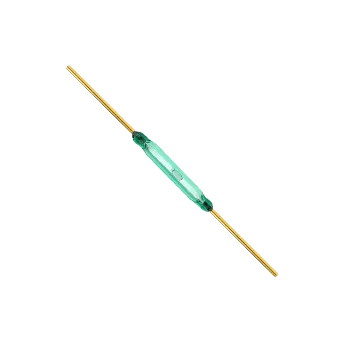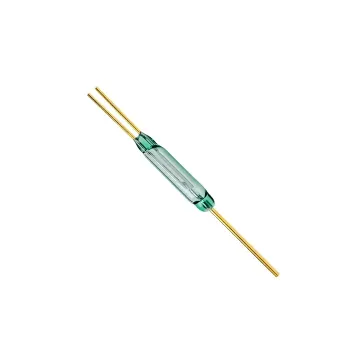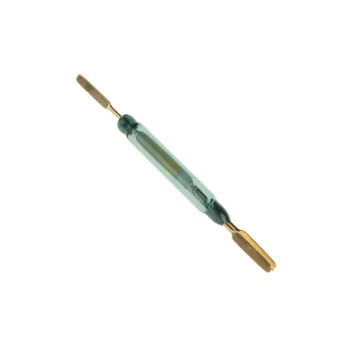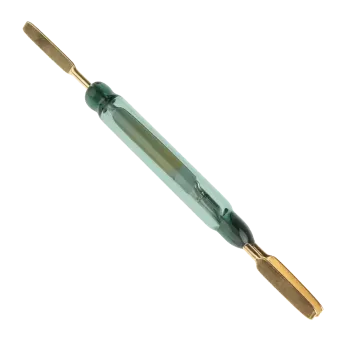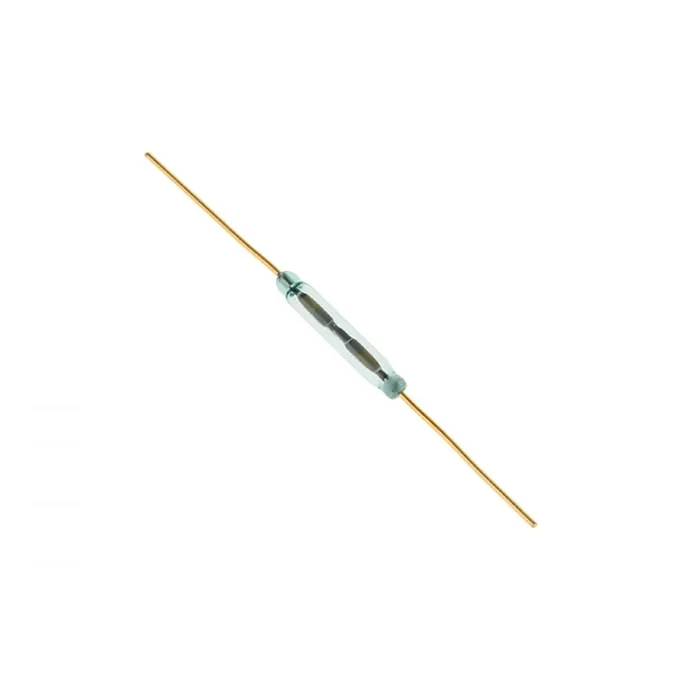
10mm Reed Switch NO 2 Pin
Your orders placed before 17:00 PM on weekdays are shipped the same day. Free shipping over 150 RON.
4.42RON
Ex Tax: 4.42RON
- Stock: In Stock
- Model: A0283.REED10-2P
Our products are shipped from our warehouse in Romania
Shipping is free for purchases of 150 RON and above.
5% discount coupon for purchases over 500 RON
10% discount coupon for purchases over 1000 RON
Same day shipping until 16:30
No minimum order price limit
Our products are shipped from our warehouse in Romania
Shipping is free for purchases of 150 RON and above.
5% discount coupon for purchases over 500 RON
10% discount coupon for purchases over 1000 RON
Same day shipping until 16:30
No minimum order price limit
Our products are shipped from our warehouse in Romania
Shipping is free for purchases of 150 RON and above.
5% discount coupon for purchases over 500 RON
10% discount coupon for purchases over 1000 RON
Same day shipping until 16:30
No minimum order price limit
Our products are shipped from our warehouse in Romania
Shipping is free for purchases of 150 RON and above.
5% discount coupon for purchases over 500 RON
10% discount coupon for purchases over 1000 RON
Same day shipping until 16:30
No minimum order price limit
Our products are shipped from our warehouse in Romania
Shipping is free for purchases of 150 RON and above.
5% discount coupon for purchases over 500 RON
10% discount coupon for purchases over 1000 RON
Same day shipping until 16:30
No minimum order price limit
Our products are shipped from our warehouse in Romania
Shipping is free for purchases of 150 RON and above.
5% discount coupon for purchases over 500 RON
10% discount coupon for purchases over 1000 RON
Same day shipping until 16:30
No minimum order price limit
Our products are shipped from our warehouse in Romania
Shipping is free for purchases of 150 RON and above.
5% discount coupon for purchases over 500 RON
10% discount coupon for purchases over 1000 RON
Same day shipping until 16:30
No minimum order price limit
Our products are shipped from our warehouse in Romania
Shipping is free for purchases of 150 RON and above.
5% discount coupon for purchases over 500 RON
10% discount coupon for purchases over 1000 RON
Same day shipping until 16:30
No minimum order price limit
Our products are shipped from our warehouse in Romania
Shipping is free for purchases of 150 RON and above.
5% discount coupon for purchases over 500 RON
10% discount coupon for purchases over 1000 RON
Same day shipping until 16:30
No minimum order price limit
Our products are shipped from our warehouse in Romania
Shipping is free for purchases of 150 RON and above.
5% discount coupon for purchases over 500 RON
10% discount coupon for purchases over 1000 RON
Same day shipping until 16:30
No minimum order price limit
10mm Normally Open Reed Switch with 2 Pins
The 10mm Reed Switch NO 2 Pin is an electromechanical device that is predominantly used to switch low voltage and current circuits. This switch is composed of two flexible metal strips, also known as reeds, that are made from ferromagnetic material and housed within a glass tube. The operation of the reed switch is dependent on the application or removal of an external magnetic field, which results in the opening or closing of the contacts.
Key Features
- Magnetic Interaction: The reed switch operates based on magnetic fields. The application of a magnetic field (for instance, bringing a magnet close) causes the metal strips inside to make contact, thus closing the circuit. Conversely, the removal of the magnetic field causes the strips to separate, thereby opening the circuit.
- Variety of Types: Reed switches come in several types, including Normally Open (NO), Normally Closed (NC), and Changeover (SPDT). In an NO type, the circuit closes when a magnetic field is applied; in an NC type, the circuit opens when a magnetic field is applied.
- Durability: The glass tube housing the metal strips shields them from environmental factors, thereby enhancing the switch's durability and reliability.
- Compact Size: The reed switch's small and lightweight design makes it suitable for a wide range of electronic and mechanical systems.
Technical Specifications
- Operating Voltage and Current: Reed switches are typically used in low voltage and current applications, often operating at 5V-12V DC and handling currents from 0.5A to 2A.
- Operating Temperature: Reed switches can function over a wide temperature range, typically from -40°C to 125°C.
- Response Time: Reed switches offer a fast response time, usually in milliseconds.


Applications
- Sensor Systems: Reed switches are used in door and window alarm sensors, bicycle speedometers, and for detecting the presence or absence of a magnetic field.
- Electronic Devices: Reed switches are employed in computer keyboards, household appliances, medical devices, and various electronic gadgets.
- Automotive Industry: Reed switches are used to detect the position of doors, seat belts, and other movable parts in vehicles.
- Industrial Automation: Reed switches are utilized for position and movement detection in industrial machines and equipment.
Advantages
- Electrical Isolation: The glass tube isolates the contacts from environmental factors, ensuring high reliability.
- Low Power Consumption: Reed switches operate with low power due to their magnetic operation.
- Long Lifespan: Reed switches experience minimal wear and tear since there are no mechanical contacts, leading to a long operational life.
- High-Speed Switching: Reed switches respond within milliseconds, making them suitable for applications requiring quick switching.
Disadvantages
- Magnetic Interference: Reed switches can be affected by nearby magnetic fields, which can cause unwanted switching.
- Fragility: The glass tube can be fragile and prone to damage from physical impact.
- Limited Current Capacity: Reed switches are not suitable for high current applications.
Example Connection
You can use a reed switch with an Arduino to create a simple circuit, such as turning on an LED when the reed switch is activated:
int reedPin = 2; // Pin connected to the reed switch
int ledPin = 13; // Pin connected to the LED
void setup() {
pinMode(reedPin, INPUT);
pinMode(ledPin, OUTPUT);
}
void loop() {
int reedState = digitalRead(reedPin); // Read the state of the reed switch
if (reedState == HIGH) {
digitalWrite(ledPin, HIGH); // Turn on the LED
} else {
digitalWrite(ledPin, LOW); // Turn off the LED
}
}
The 10mm Reed Switch NO 2 Pin is a versatile and reliable switching device that operates using a magnetic field. It is ideal for low voltage and current applications and is widely used in sensor systems, electronic devices, the automotive industry, and industrial automation. The advantages include low power consumption, high reliability, and a long lifespan. However, they can be affected by magnetic interference and are not suitable for high current applications. The compact and durable design makes reed switches an essential component in many applications.
Your orders placed before 16:30 on weekdays are dispatched the same day.

